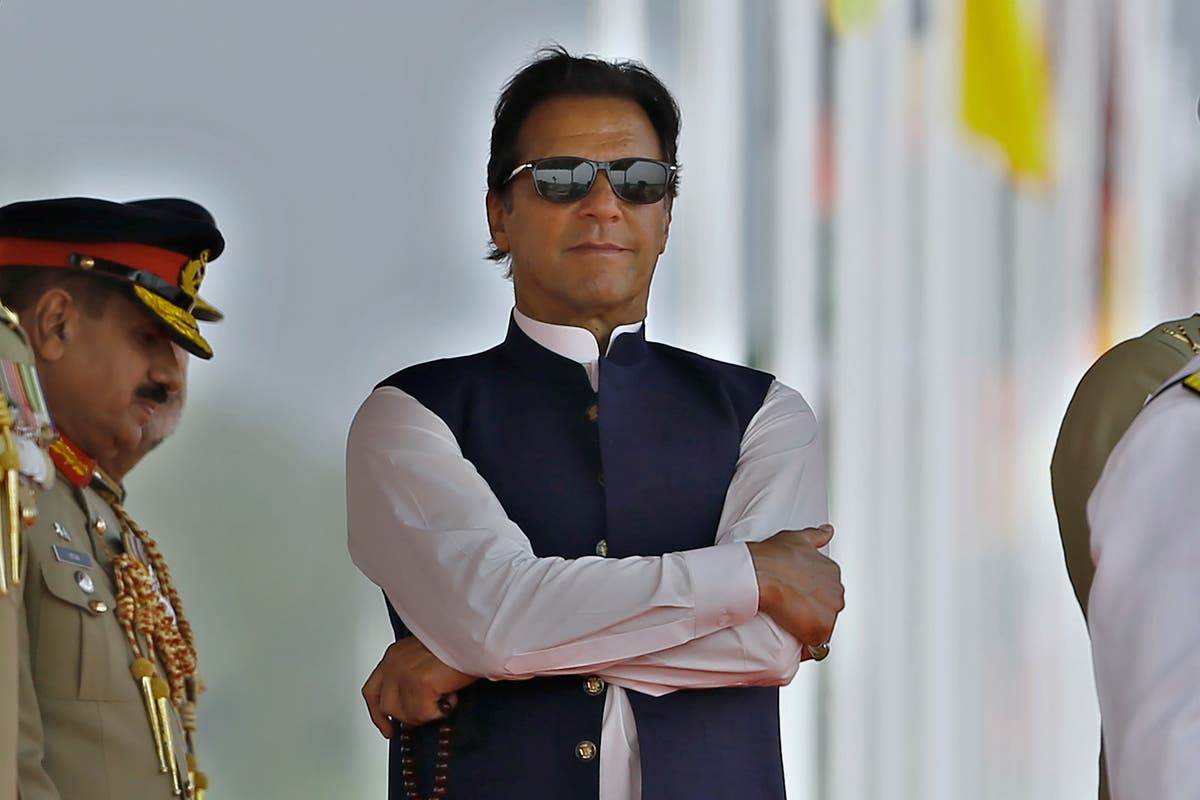
Pakistan’s prime minister, besieged by the opposition and abandoned by coalition partners, faces the greatest challenge of his political career on Thursday as debate begins on a no-confidence vote.
Imran Khan, one of Pakistan’s most colorful leaders, was once idolized as a cricket star, though he later wrapped his politics in the banner of Islam. Married three times and divorced twice, he often runs afoul of women’s rights groups. During his term as prime minister, he has been accused of economic mismanagement.
Khan was to address the nation later Thursday, after a series of defections appeared to give his political opponents the 172 votes needed to out him from Pakistan’s 342-seat Parliament. The vote is expected in three to seven days.
His governing style has been described as confrontational. He came to power in 2018 promising promising to rid his country of corruption, even as he partnered with some of Pakistan’s old guard reportedly steeped in generations of it. He called them ‘electables’ — necessary to win elections in Pakistan because their wealth and vast land holdings guaranteed votes in large swathes of the country.
Khan also keeps company with radical clerics who often espouse a philosophy that frightens Pakistan’s minorities. One clerical ally of Khan’s, Maulana Tariq Jameel, once said women in short skirts had caused the COVID-19 epidemic.
Still, he has been credited with building the country’s foreign reserves, now beyond $18 billion. Remittances from Pakistanis living overseas was a whopping $29 billion in 2021, despite the economic downturn caused by the epidemic. Khan’s reputation for fighting corruption is credited with encouraging Pakistanis to send money to their homeland. He has also cracked down on the unofficial money transfer system known as Hawala.
Still, the opposition cites high inflation and a weak Pakistani rupee as his fault, even as Khan ’s handling of the COVID 19 epidemic brought him international praise. His implementation of so-called “smart” lockdowns that targeted heavily infected areas — rather than a nationwide shutdown — kept some of the country’s key industries like construction afloat.
On Thursday the leader of a key opposition party, Bilawal Bhutto, urged Khan to resign. “You have lost. . . You have only one option: resign.”
In recent days Khan has turned to conspiracy theories to explain the challenge to his rule. He has gone on national television to say that the opposition is in cahoots with a foreign government — clearly insinuating the United States — to unseat him because they don’t like his policies. These policies include Pakistan’s close ties to China and Russia, and his stand on Ukraine. Pakistan abstained from the U.N. security Council vote condemning Russian for invading Ukraine.
Madiha Afzal, a fellow at the Washington-based Brookings Institution blamed Khan’s political woes on his confrontational style and a cooling of relations between him and the powerful military, widely reported to have assisted Khan’s election victory in 2018.
Pakistan’s army ruled directly for more than half of the country’s 75-year history. Even when governments are democratically elected, the military maintains considerable control from behind the scenes, despite their claims of neutrality.
In a Brookings Institution podcast, Afzal said it’s rare for a Pakistani political leader to finish his term.
“This is part of a much larger, longer cycle that reflects on Pakistan’s built-in political instability. Essentially, opposition parties don’t wait for elections to occur, for the previous party to be voted out, or for the prime ministers to be ousted from power,” said Afzal. “While the military says that it is neutral in this situation, in this political crisis, what many read that as saying is that the military has basically withdrawn its support from Khan.”
_____
Follow Kathy Gannon on twitter at www.twitter.com/kathygannon _____
Associated Press Writer Munir Ahmed in Islamabad contributed to this report.








